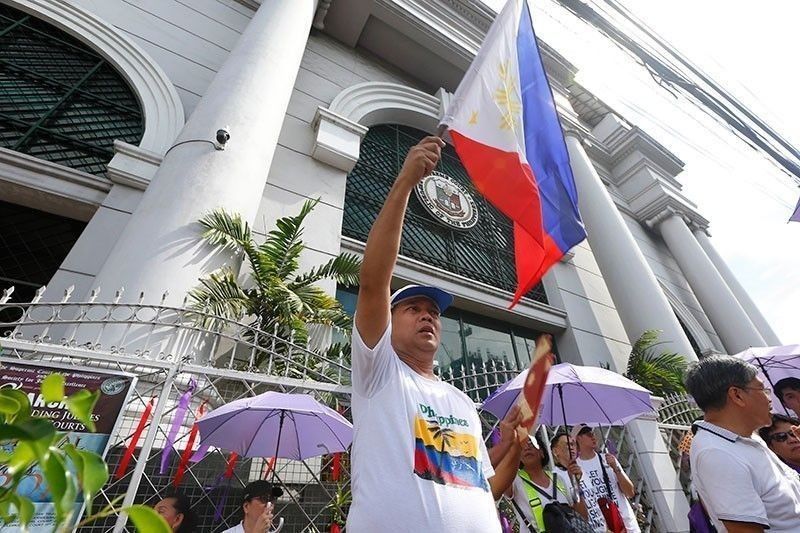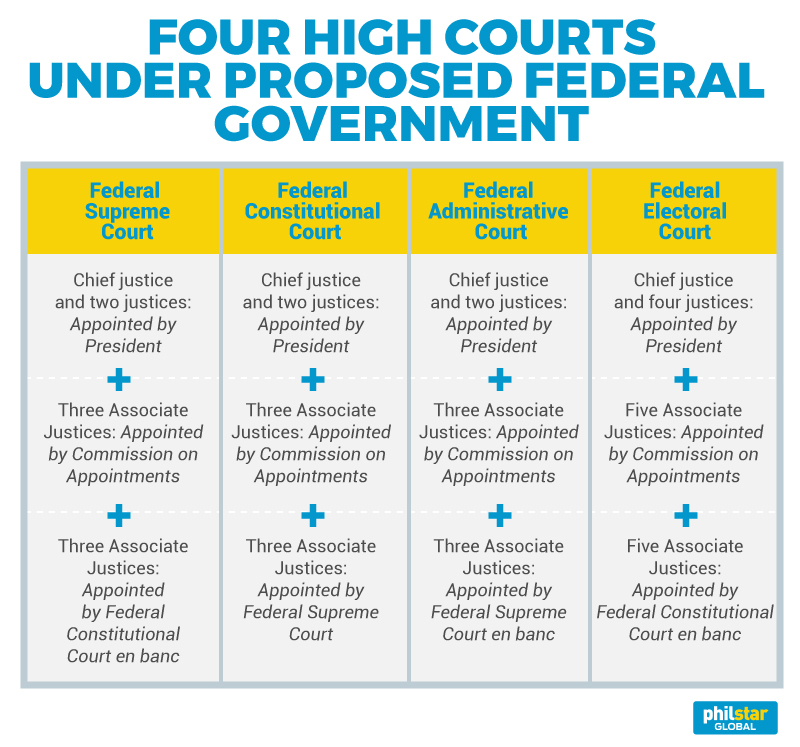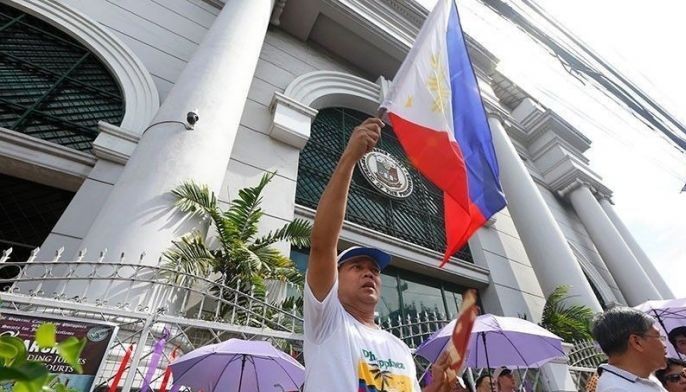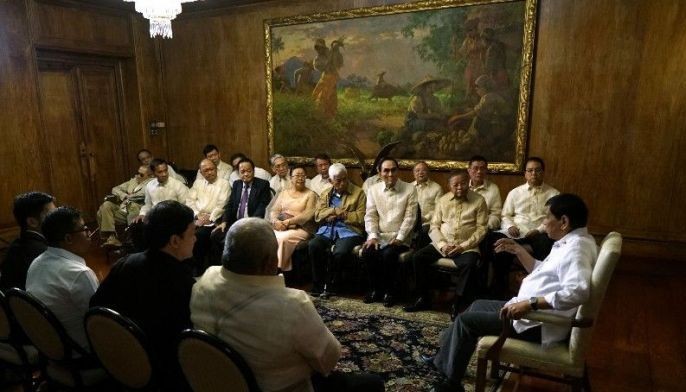Four chief justices, high courts in proposed federal constitution

MANILA, Philippines — The 22-member consultative committee handed its draft on the proposed federal constitution to President Rodrigo Duterte on July 9.
This new form of government is seen by supporters to be strong enough to hold the country’s “socially, politically and economically sustainable” regions together.

The proposed constitution will create four high courts: A Federal Supreme Court, Federal Constitutional Court, Federal Administrative Court and Federal Electoral Court.
Under Article IX (Judicial Department) of the draft Federal Constitution, there will be four chief justices, each to be appointed by the president.
There will also be a total of 38 associate justices: Eight each for the Federal Supreme Court, Federal Constitutional Court and Federal Administrative Court, while the Federal Electoral Court will have 14 associate justices in its bench.
Each member of the federal high courts may serve a term of 12 years or until they reach the retirement age of 70, or become incapacitated to discharge their duties.
Federal Supreme Court
The Federal Supreme Court will be composed of a chief justice and eight associate justices. The chief justices and two associate justices will be appointed by the president; three will be appointed by the Commission on Appointments and three by the Federal Constitutional Court en banc.
It will exercise exclusive jurisdiction over conflicts within the Federal Government and its branches and agencies; between Federal Government and Federated Regions and between and among the Federated Regions.
Cases involving ambassadors, other public ministers and consuls also fall under the jurisdiction of the Federal Supreme Court.
It will also have exclusive coverage on petitions for certiorari, prohibition, mandamus and quo warranto.
The Federal Supreme Court also has the power to “review, revise, reverse, modify or affirm on appeal or certiorari” on final judgments and lower courts—except those whose issues fall under the exclusive jurisdiction of the three other high courts.
It will also have power over cases involving jurisdiction of “any lower court, legality of any tax, impost, assessment, or toll;” “criminal offenses with penalty of reclusion perpetua or higher” and on cases involving error or question of law.”
Federal Constitutional Court
The Federal Constitutional Court will exercise exclusive and original jurisdiction over disputes involving the constitutionality of the Federal Government and its agencies’ law, treaty or deals. This includes challenges on the constitutionality of presidential decrees, proclamations, orders, instructions, ordinances and administrative issuances issued by the Federal Government and its agencies.
Any dispute on constitutionality shall be brought to the Federal Constitutional Court.
It will also exercise jurisdiction over cases that involves a writ of habeas corpus, writ of amparo, writ of habeas data and writ of kalikasan.
The Federal Constitutional Court will also have the exclusive jurisdiction over impeachment cases. The judgment or conviction in such case should have the concurrence of at least six court members.
Federal Administrative Court
The Federal Administrative Court shall have the exclusive jurisdiction to review on appeal or certiorari, in accordance with its rules, the decisions, judgments, or final orders or resolutions of the following:
- Federal Civil Service Commission
- Federal Commission on Elections
- Federal Commission on Audit
- Federal Commission on Human Rights
- Federal Ombudsman Commission
- Federal Competition Commission
- All administrative and quasi-judicial bodies in the Federal Republic
It will also serve as the impeachment court for cases involving a member of the Federal Constitutional Court. Six concurring votes are needed for a judgment of conviction.
Federal Electoral Court
The federal electoral court has the most members among the four federal high courts.
It will exercise original jurisdiction over cases involving elections, returns, and qualifications of the president, vice president, members of both Houses of Congress. Contests involving the president and the vice presidents will be decided by the Federal Electoral Court en banc.
Cases involving members of Congress, meanwhile, shall be heard by the Court’s divisions.
This court will also have the power to review, on appeal or certiorari, all decisions, resolutions, and orders of trial courts that involve elections, returns and qualifications of other regional elective regional, provincial, city, municipal, and barangay officials
It will also exercise power to review on appeal and certiorari rulings from the Commission on Elections with respect to all questions affecting elections. This includes qualifications of candidates and political parties, and other pre-election controversies, and the conduct of plebiscites and referenda.
- Latest
- Trending
































